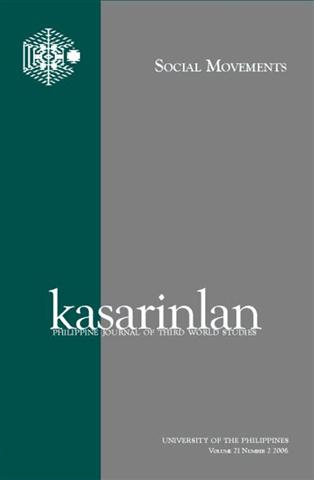Thinking and Nurturing Transnational Activism: Global Citizen Advocacy in Southeast Asia
Abstract
In recent years, international nongovernment organizations (NGOs) and transnational networks involved in knowledge creation have become key civil-society actors in Southeast Asia. How and why has such form of transnational activism expandedsignificantly in the region? The author suggests that this type of activism is a response to socioeconomic and political processes associated with globalization, as well as a consequence of the relative and limited political liberalization that has characterized
some Southeast Asian countries. The specific combination of these two factors is peculiar to the region since contemporary transnational activism in Western Europe and North America takes place within open democracies with well-established civil-society organizations. Moreover, trade liberalization and other global economic processes have not marked domestic dynamics as rapidly and suddenly as the economic boom of the
1980s and, eventually, the 1997 financial crisis did in certain Southeast Asian countries. To explore this argument, the paper traces the genealogy and analyzes the objectives and activities of four transnational activist organizations. Common to the four organizations is the central place of discourse and knowledge production and its linkages to mobilization, network building and constituency building, and a growing awareness that they are confronted with common challenges and share common targets.
Published
2007-11-14
Section
Articles
Keywords
transnational activism; transnational networks; ARENA; TWN; Focus; APRN
By submitting a manuscript, the authors agree that the exclusive rights to reproduce and distribute the article have been given to the Third World Studies Center.



